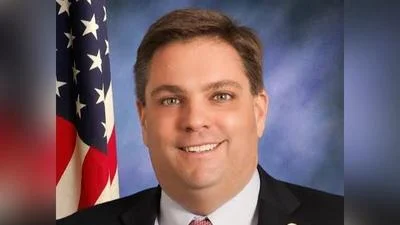Illinois state Rep. Dan Caulkins (R-Decatur) opposes Senate Bill 1784 on the basis that the legislation would hurt workers opposed to paying union dues and grant the unions greater access to employees' personal information, all while curtailing their rights to free speech.
“This bill is an attempt to get around the Janus ruling by the Supreme Court allowing union members to opt out of unions because Democrats are so heavily dependent on their support,” Caulkins told the Chambana Sun. “They’ve come up with this bill as a way to circumvent what the high court said is the law.”
Despite strong opposition from Caulkins and a handful of others in the House, Springfield lawmakers recently voted by a better than four-to-one margin to pass the legislation.

Illinois state Rep. Dan Caulkins (R-Decatur)
“It’s another blatant attempt by public-sector unions to intimidate people that have chosen not to pay dues,” Caulkins said. “It’s very intrusive to the privacy of members that may have opted out and don’t want to be harassed.”
In the Janus v. AFSCME Supreme Court verdict, the high court stipulated that government labor unions are inherently political and that public employees are not obligated to join them as a requirement for employment and have the option of resigning union membership and ceasing to pay union dues. SB 1784 now heads back to the Senate for a vote on changes made to its original form during House proceedings.
In its current form, the bill would also allow public-sector unions such rights as meeting with new hires during working hours; the sole authority of processing requests by members to stop dues payments, and requires public employers to provide worker information such as personal email or cell phone numbers to the union at least once a month, regardless of the employees’ membership status or preferences.
“I think there are other provisions that will also be disruptive in the workplace where we’re going to have the union coming in trying to pressure people to stay in the union,” Caulkins said.






 Alerts Sign-up
Alerts Sign-up